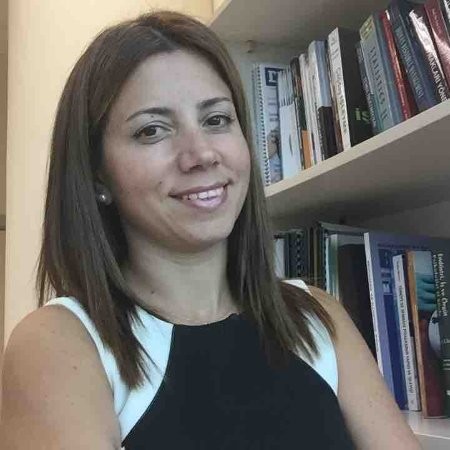Different cultures can have different motivational orientations, individual preferences and expectations
News

“Different cultures can have different motivational orientations, individual preferences and expectations” – Guest Professor Dr. Gaye Özçelik from İstanbul Bilgi University
Professor Gaye Özçelik, doctor of philosophy and associate professor at the İstanbul Bilgi University, has been teaching a lecture on Psychological Aspects of Human Resource Management at the Business School Pforzheim for several semesters now. In an interview with student reporter Sophie Mercedes Familia, she talks about her fascination with psychology and HRM as well as the university campus in Istanbul.
Professor Özçelik, for two semesters, you held a lecture on “Psychological Aspects of HRM” here in Pforzheim. Which students do you address primarily?
This course is designed as an elective course for students who wish to pursue a career in the industrial psychology field, particularly in HRM. It is beneficial for students who will be taking on a role in any function of the business unit as it integrates the organizational behavior and practices of HRM, psychology and social psychology.
This course provides an insight into the development of these practices and how they are run and can be developed through psychology-or organizational behavior-based theories. We will also look at the tools used to create organizational or individual commitment and how they can be better engaged in the workplace. This extreme form of engagement has the potential to lead to exhaustion and burnout and doesn't have any cross-cultural differences.
Different cultures can have different motivational orientations, individual preferences, and expectations.
What fascinates you personally about psychology and HRM?
I have a bachelor’s degree in psychology, as well as an MBA and a PhD degree in management. During my undergraduate years, I decided to focus on the industrial psychology side, and I started trying to get some insight into different personal styles of working which requires a lot of communication: understanding people and building empathy. I also gathered professional experiences both on the consultancy side as on the client side in international companies and organizations, before concentrating completely on the academic side.
I have lectured on various topics in the field of management, ranging from principles of management and business, human resource management to leadership, organizational behavior and international management. The theoretical knowledge and skills acquired during my undergraduate years in psychology allowed me to apply various psychological aspects and insights to my academic and research studies.
How do you manage to transfer your fascination to the students?
You should better ask the students (laughs). I feel quite immersed in what I am doing. I prefer interactive sessions with lots of discussions and brainstorming debates. Additionally, I always push the students to interpret and to improvise, whether what they say makes sense or not, because that is where the great ideas come from.
I do not think that my fascination will be transferred to all students, because nowadays, you can find such information everywhere on the internet but it's important how you elaborate it, how you simply interpret these things with different experiences and perspectives. Being with students makes me feel more dynamic and up to date.
I have been teaching for more than 15 years and each culture, each student from a different culture and each generation evolves differently and constantly.
Is there a difference between teaching students at Istanbul Bilgi University and teaching students in Pforzheim?
The university in Istanbul has a very open minded democratic and international culture with many students from all over the world. In terms of teaching in a multicultural context, I did not feel any difference compared to Pforzheim - there are international students as well as international professors.
When studying at Bilgi University, students will find themselves on a rather large and green campus which provides a very cozy atmosphere. And we have an extension of the sea with a small coastline, which is beautiful.
Living in a globalized and fast-changing environment like today, what is your advice for business students?
We are now discussing the 21st century skills for the new generation to compete with the world around them, and in terms to students, they need to develop themselves for these challenges.
Especially for business students today, one of the most important things they need to develop is a growing mindset. They need to make an effort to develop themselves, to learn from many different aspects and sources, to try to remain persistent and resilient to change. This is not quite easy, but I think the world teaches each of us in the good and the bad ways to be resilient nowadays.
The other advice is to be able to communicate not only with each other, but also with people from different cultures. And in that context, it is very important to be aware of others and to build social relationships and networks.
The last thing I would tell them is to develop their digital literacy for the rapidly developing world. I know, it is sometimes hard to keep up, but with digitalization, you can build competencies to collect, conceptualize, analyze and consolidate big data with a critical thinking process.
Thank you very much, Professor Dr. Özçelik!
“Non scholae, sed vitae discimus” (learning not for school but for life) – this principle is followed by İstanbul Bilgi University, Istanbul. The university was established in 1996 and hosts around 20,000 students spread over three campuses, eight faculties and more than 150 bachelor and master study programs. İstanbul Bilgi University contributes to science, artistic production and the development of technology in an international environment. Between 2006 and 2019, the University had a joint venture with Laureate Education, a private education group situated in Baltimore/Maryland, USA, which is said to be one of the largest international networks of universities worldwide.


